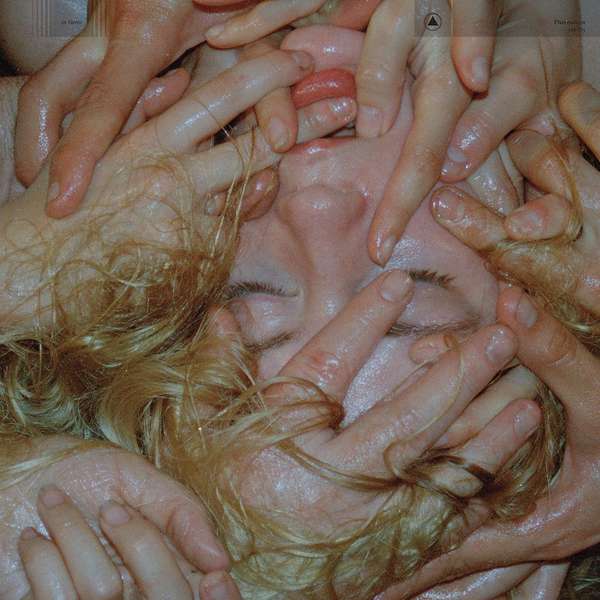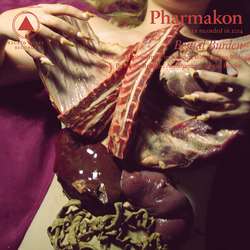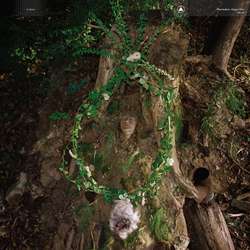Back in 2014, Margaret Chardier came face to face with a life-threatening situation, which inspired her new record at the time, Bestial Burden. As was the case with her third record, her previous works were dealing with the human experience, the disconnect between mind and body, and the notion of one's mind being trapped inside their body. A young veteran, Chardiet has been performing with her power electronics project Pharmakon for a decade now, addressing the concept of mind-body dissonance, and her new album, Contact, found her at a place where she wanted to evaluate her journey so far.
For Contact she forces a change of perspective, where she examines the ability of the mind to transcend the body. This extroversion is depicted in the artwork of the new album, where instead of the fear of death, depicted with maggots in Abandon, or the complex operations of human organs, appearing in Bestial Burden, we see Chardiet trapped amongst myriad of fingers. The image has the same alarming attribute as the two previous records, but here the spotlight shifts to an external presence.
Chardiet's focus in Contact is consciousness itself, and in order to better understand its nature, she studied trance states. In effect this has caused a slight shift in Pharmakon's approach, where the brutal element of power electronics is applied to reach a meditative quality, a deep introspective inquiry. The sounds themselves have not been tamed, and Chardiet still screams in inhuman fashion, with howling shrieks and distorted cries, but the structures themselves have moved into different territories. The tracks are set to mirror the four stages of trance: preparation, onset, climax and resolution, a practice that has offered a smoother transition from one part to the next, as opening track “Nakedness of Need” lets on. It is what lies in the core of the record, this study in the nature of consciousness and the difficulty in grasping it.
The human mind is clogged by information, always operating, never stopping, neurons firing at every direction, a fact that makes this “busy” state finding its perfect depiction within the power electronics setting. Take a track like “Transmission” and its continuous beating of synths and looped grinding noise, moving in circles constantly around you. In the process Pharmakon display the possibility of forcing changes in one's thought, the manifestation of confusion and extravagant thinking in tracks like the dystopian “Sleepwalking Form,” the swinging pendulums of “Somatic” or the bombastic energy of “No Natural Order.” All these are deep states of trance, and Chardiet produces a navigational interpretation of these diverse notions and concepts, constructing a map of a transcendental practice with Contact.




